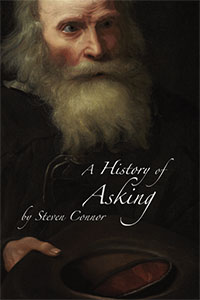Ecological Rewriting: Situated Engagements with The Chernobyl Herbarium
 Friday, June 23, 2023 at 3:56PM
Friday, June 23, 2023 at 3:56PM Open Humanities Press is pleased to announce the publication of Ecological Rewriting: Situated Engagements with The Chernobyl Herbarium, edited by Gabriela Méndez Cota.
Like all Open Humanities Press books, Ecological Rewriting is available open access (it can be downloaded for free):
https://www.openhumanitiespress.org/books/titles/ecological-rewriting/
Book description
Ecological Rewriting: Situated Engagements with The Chernobyl Herbarium is the first book in the Combinatorial Books: Gathering Flowers series. Supported by the COPIM project, it is the creation of a collective of researchers, students and technologists from the Universidad Iberoamericana in Mexico City. Led by Gabriela Méndez Cota, this group of nine (re)writers annotate and remix The Chernobyl Herbarium: Fragments of an Exploded Consciousness by the philosopher Michael Marder and the artist Anaïs Tondeur (originally published in OHP’s Critical Climate Change series) to produce what is a new book in its own right – albeit one that comments upon and engages with the original.
In the Mexican context, experiments with art, writing and technology have a history that is tied less to academic publishing or avant-garde scholarship and more to community-building and grassroots organising. It is important, then, that in creating Ecological Rewriting the collective led by Méndez Cota are inspired by locally influential Cristina Rivera Garza’s theorization of re-writing as dis-appropriation, rather than appropriation of another’s work. Alongside philosophical concepts such as Jean-Luc Nancy’s ‘literary communism’, Rivera Garza’s ethical poetics is here turned into the proposition that the reuse of open access materials does not need to be understood as appropriation or reappropriation of ‘knowledge’. Instead, it can be conceived as a creative exercise in ‘unworking’ or ‘disappropriating’ academic authorship which responds to The Chernobyl Herbarium’s invitation to think through (vegetal) exposure and fragility. Thus, the authors challenge property and propriety by creating singular, fragmentary accounts of Mexico’s relation with Chernobyl. In the process they explore ways of bearing witness to environmental devastation in its human and non-human scales, including the little-known history of nuclear power and the anti-nuclear movement in Mexico – which they intersect with an experimental history of plant biodiversity. The resulting book constitutes both a practical reflection on plant-thinking and a disruptive intervention into the conventions of academic writing.
Ecological Rewriting: Situated Engagements with The Chernobyl Herbarium exists as an online version (https://doi.org/10.21428/9ca7392d.07cdfb82) and as a print version (forthcoming). The online version is an experimental publication with links to the original sections of The Chernobyl Herbarium that the writers responded to, so that the reader can follow an associative trail between the two publications.
Authors
Gabriela Méndez Cota, Etelvina Bernal Méndez, Sandra Hernández Reyes, Sandra Loyola Guízar, Fernanda Rodríguez González, Yareni Monteón López, Deni Garciamoreno Becerril, Nidia Rosales Moreno, Xóchitl Arteaga Villamil, Carolina Cuevas Parra
Editor Bio
Gabriela Méndez Cota is a lecturer and researcher in the Department of Philosophy at Universidad Iberoamericana, Ciudad de México. Inspired by deconstruction, psychoanalysis and technoscience feminism, her research explores the subjective and ethical dimensions of technological/political controversies in specific contexts. Her books include Disrupting Maize: Food, Biotechnology and Nationalism in Contemporary Mexico (Rowman & Littlefield, 2016). Among other places, her work has appeared in New Formations, Media Theory, Women’s Studies: An Interdisciplinary Journal, and the Routledge Handbook of Ecocultural Identities (2020). With Rafico Ruiz, she co-edits the open access journal of culture and theory, Culture Machine (culturemachine.net). Between 2019 and 2021 she led a practice-based educational initiative on critical/feminist/intersectional perspectives of open access, which included a collaboration with the COPIM project led by the Centre for Postdigital Cultures at Coventry University, UK, and resulted in a collective rewriting of The Chernobyl Herbarium (Open Humanities Press, 2015).
Series
Ecological Re-writing is published as part of the Combinatorial Books: Gathering Flowers series, edited by Janneke Adema, Simon Bowie, Gary Hall and Rebekka Kiesewetter:
http://www.openhumanitiespress.org/books/series/liquid-books/
 Gary Hall | Comments Off |
Gary Hall | Comments Off | 






